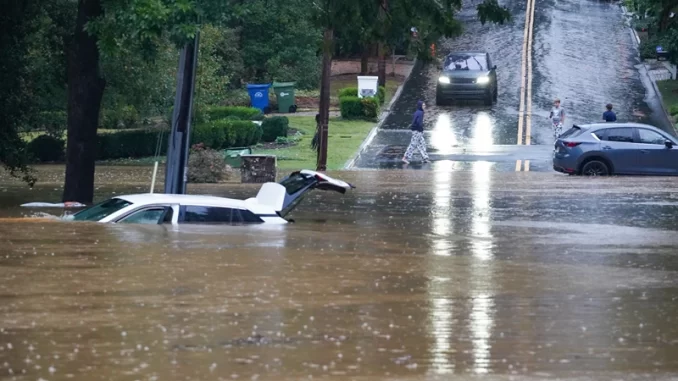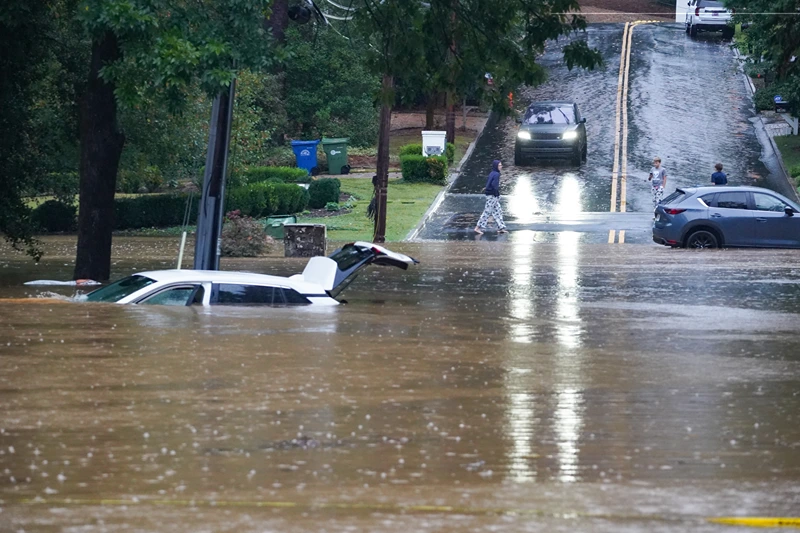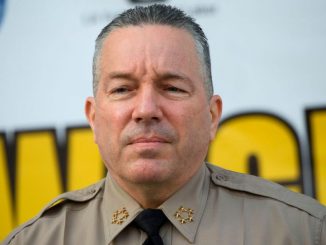

OAN Staff Blake Wolf
10:06 AM – Monday, October 7, 2024
Hurricane Helene ripped through multiple southeastern states, hitting especially hard in Republican regional strongholds within the swing states of Georgia and North Carolina, which could affect the outcome of the election.
Advertisement
As the November election looms, regions of western North Carolina and eastern Georgia dealing with heavy floods are largely Republican strongholds. As you can imagine, individuals put in those situations have far more immediate concerns other than voting, which quite possibly could affect voter turnout.
Over 200 people have been killed by the hurricane, with roughly half of the victims reportedly in North Carolina. Many of the survivors are still without water and electricity.
Floods, power outages, and scarce access to food and water have displaced residents and impacted postal services, complicating the mail-in voting process which could discourage voters from participating when they otherwise would have.
During the 2020 election, former President Donald Trump won 61% of the vote in the North Carolina counties which were declared a disaster following Hurricane Helene. Similarly, he also won 54% of the vote in Georgia’s declared disaster counties.
The impacts of the hurricane “creates unexpected, substantial new barriers to voting,” stated Michael Morley, a law professor at Florida State University, known for studying elections after natural disasters and emergency events.
“It imposes a lot more unexpected burdens on election officials, puts more strain on the election administration system, and it requires election officials to take emergency steps [to] mitigate the impact of the hurricane on both the election as a whole, and more specifically, on people’s ability to participate in the election,” Morley continued.
Around 17% of registered voters in North Carolina preside in the disaster areas, impacting roughly 1.3 million voters, according to a report by Michael Bitzer, a professor of politics and history at Catawba College in Salisbury, North Carolina.
“It is going to be a monumental task to try and implement an election in [a] quarter of North Carolina’s counties,” Bitzer stated. “We’re into crunch time when it comes to holding an election and how this will be pulled off will take a Herculean effort.”
Although election offices within the disaster areas have been closed, North Carolina election officials claim that they are confident that all counties will be ready for early voting, which is scheduled for October 17th.
“If nothing else, the counties and their boards of elections and their election officials and workers are going to do their utmost because they know that it’s dependent on them to make sure that the voters’ voices are heard,” Bitzer continued.
“In a state like North Carolina where margins matter, then every little tweak to the electorate could be the tweak that makes the difference,” stated Chris Cooper, a political scientist at Western Carolina University. “It’s right on the razor’s edge between red and blue.”
Meanwhile Georgia election officials are also working to ensure that Georgian’s will have their voices heard, as early voting is scheduled for October 15th.
“We have to let the first responders finish doing their jobs, but as power is restored and voting locations can be assessed, we will make sure that the upcoming election is safe, secure and convenient for all Georgia voters,” stated Georgia’s Secretary of State Brad Raffensperger.
Although there is still plenty of time for voters in affected areas to be able to vote, the voter registration deadline is October 7th, which could be a problem for individuals affected who haven’t registered yet and have more immediate priorities. It has yet to be seen if voter registration deadlines will be extended.
A 2022 study by Kevin Morris, a voting policy scholar at the Brennan Center for Justice, found that voter turnout significantly fell within the largely Republican counties of Florida, following the extensive damage Hurricane Michael caused counties in Florida in 2018.
“If [a voter’s] house is damaged or whatever else and they realize suddenly their polling place has moved, then maybe that’s the straw that makes it too much for them to vote,” Morris stated. “A lot of the decreased turnout was attributable to the closure of polling places around the Panhandle.”
Former President Trump responded to a reporter asking if he was worried about the potential loss of votes, to which Trump responded that he’s “not thinking about voters right now. I’m thinking about lives. And to be honest, it’s much bigger than anything else.”
Stay informed! Receive breaking news blasts directly to your inbox for free. Subscribe here. https://www.oann.com/alerts
Advertisements below






Be the first to comment